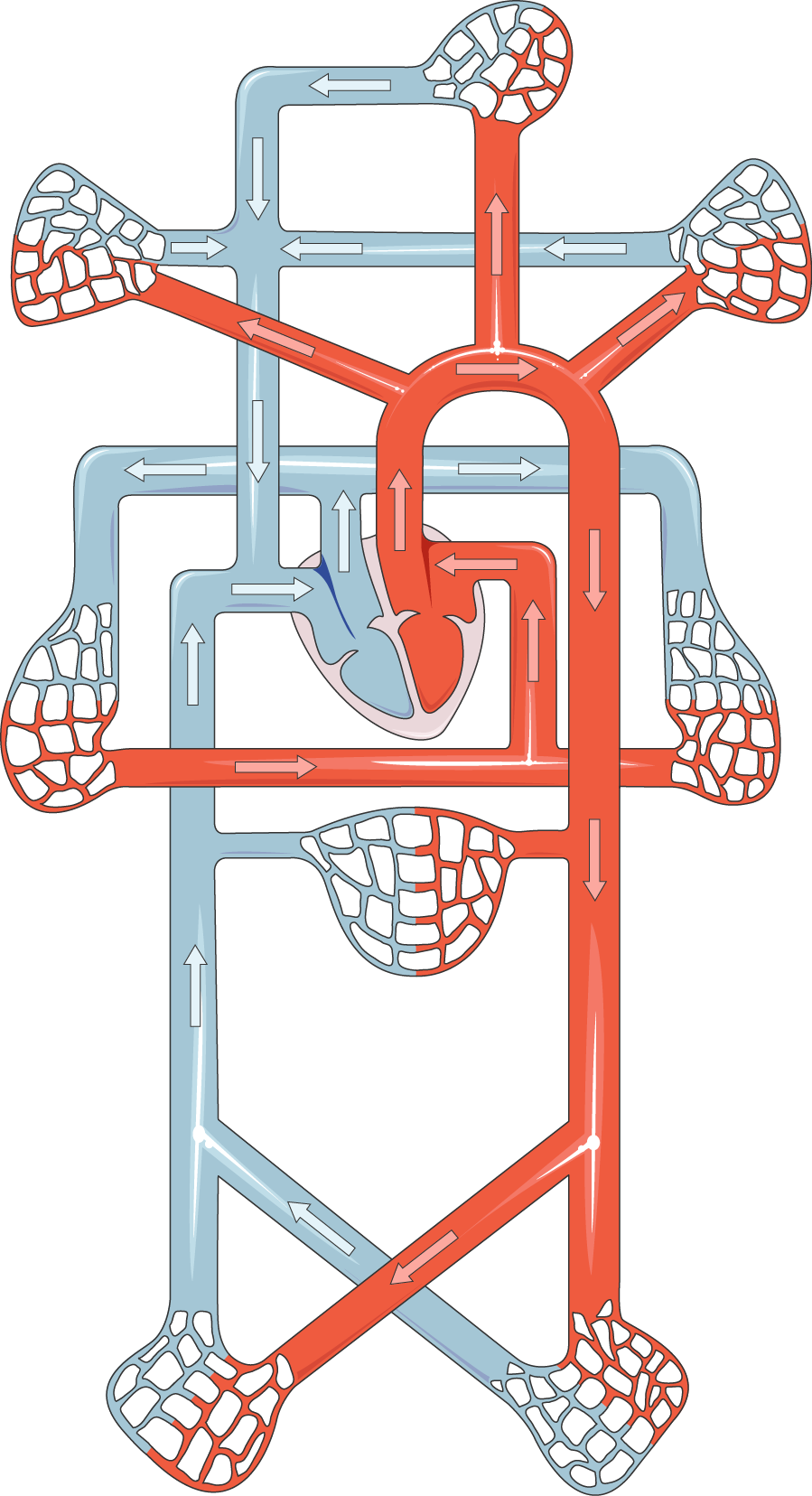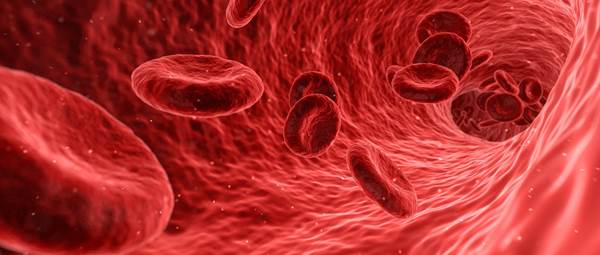Functions of Blood: regulation
 One of the key functions of blood is regulation.
One of the key functions of blood is regulation.
The blood helps to maintain the internal conditions within the body when external conditions outside of the body change or when other factors like illness or exercise are affecting the body.
The process of thermoregulation maintains optimum body temperature.
The blood plays a role in temperature regulation. It distributes heat throughout the body, from the core to the surface and vice versa.
By changing the blood flow to the skin, the body can control heat exchange at its surface with its surroundings.
(Picture: the blood distributes heat throughout the body)
Increasing the amount and speed of blood flowing to and within the skin by widening the blood vessels (vasodilation) allows more heat to be lost thereby reducing body temperature. Narrowing the blood vessels (vasoconstriction) means less heat will be lost this way thereby maintaining the core temperature of the body.
Have you ever noticed the veins in your hands and feet on a warm day? They look bigger and are more obvious. Your body has recognised that it is hotter than normal and needs to cool down. The blood vessels are dilated so more blood flows near and at the surface of your body to allow heat to be lost to the air. The smallest blood vessels, the capillaries, also dilate and this makes your skin feel warm to the touch. The blood vessels will narrow again when the body temperature is back to normal.

Helping the body with this temperature regulation process will help you cool down and stay cool when the weather is hot. Finding the coolest environment whether that is inside or outside in the shade, wearing loose lightweight clothing so heat can escape from your skin and keeping hydrated to maintain blood volume and enable increased flow to the skin will all help. It is extra important to drink plenty of fluids when you are donating blood when the weather is warmer.
Did you know?
The optimum internal body temperature is around 37°C.
The control centre for body temperature is within the brain. It monitors the temperature of the blood and receives signals via nerves about the temperature at the skin.
Small blood vessels in the lining of your nose are able to warm cold air to body temperature before it gets to the lungs.




